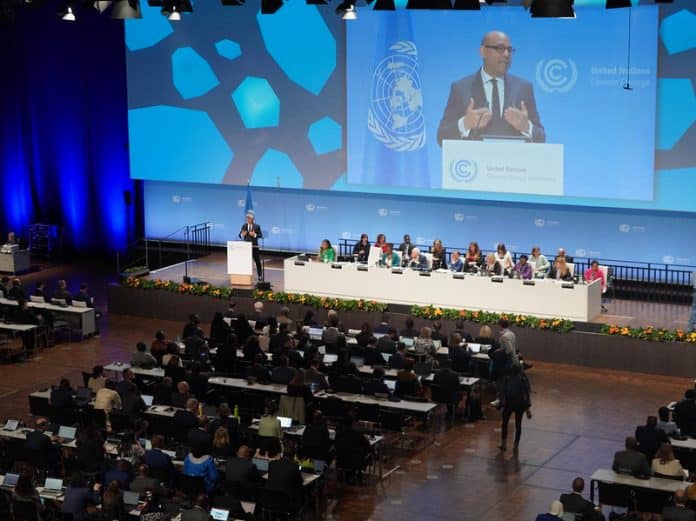Around 6000 experts from almost every country in the world have been seeking a solution to the controversial issue of climate financing in Bonn since beginning of last week. Since 2009, the aim has been for industrialized countries to provide billions in aid to poorer countries every year. This was confirmed in 2015 in the Paris Climate Agreement and extended until 2025. The target of 100 billion dollars per year was reached for the first time in 2022.
But now the question is how to proceed after 2025. The next World Climate Conference next November in Baku, Azerbaijan, is expected to make a concrete decision on this.
In his opening speech at the World Conference Center in Bonn, UN climate chief Simon Stiell called on the participants to step up their efforts. “We absolutely cannot afford to stumble in the next ten days,” said the Grenadian politician. “It is clear that climate protection measures must be taken at a much, much faster pace.”
It is unlikely that concrete draft texts will be presented in Bonn. According to a recent Unicef study, extreme heat and air pollution can have serious consequences, including death, especially for newborns and infants. Malnutrition, which is partly responsible for almost half of all global deaths of children under the age of five, is expected to increase as a result of climate change. Diseases that are often life-threatening for children, such as malaria, will also continue to spread.




